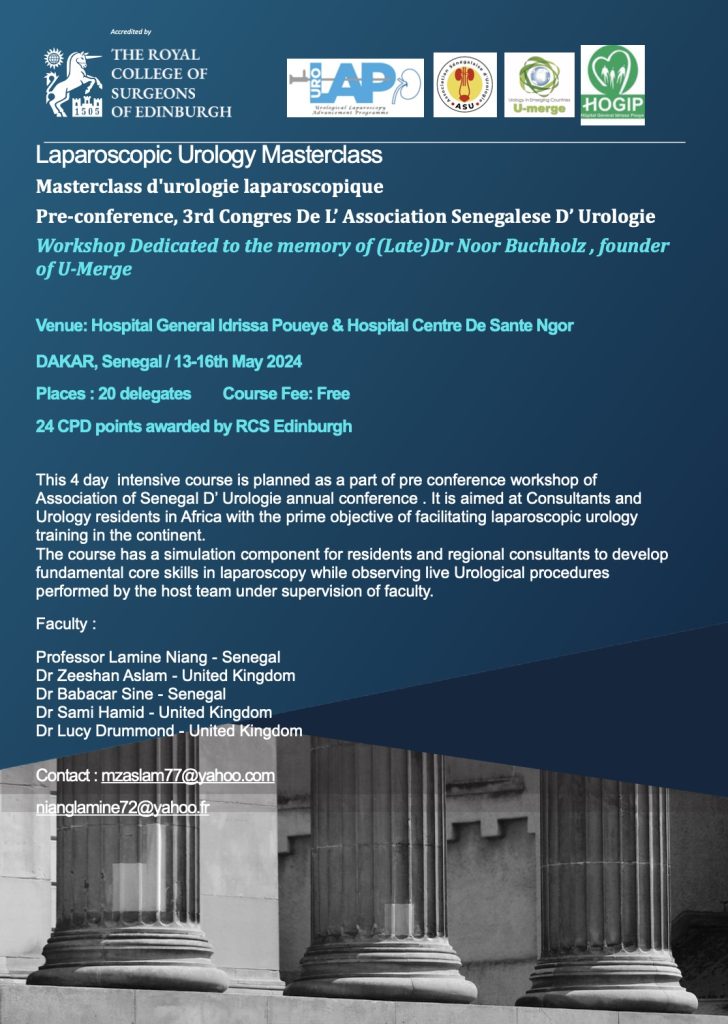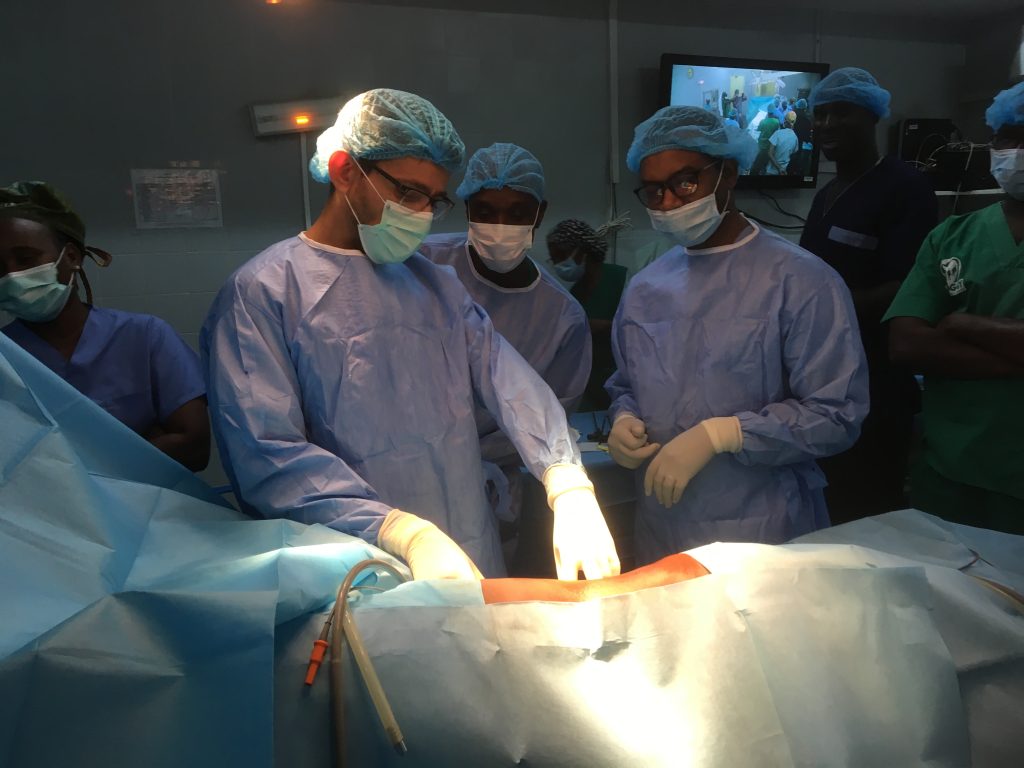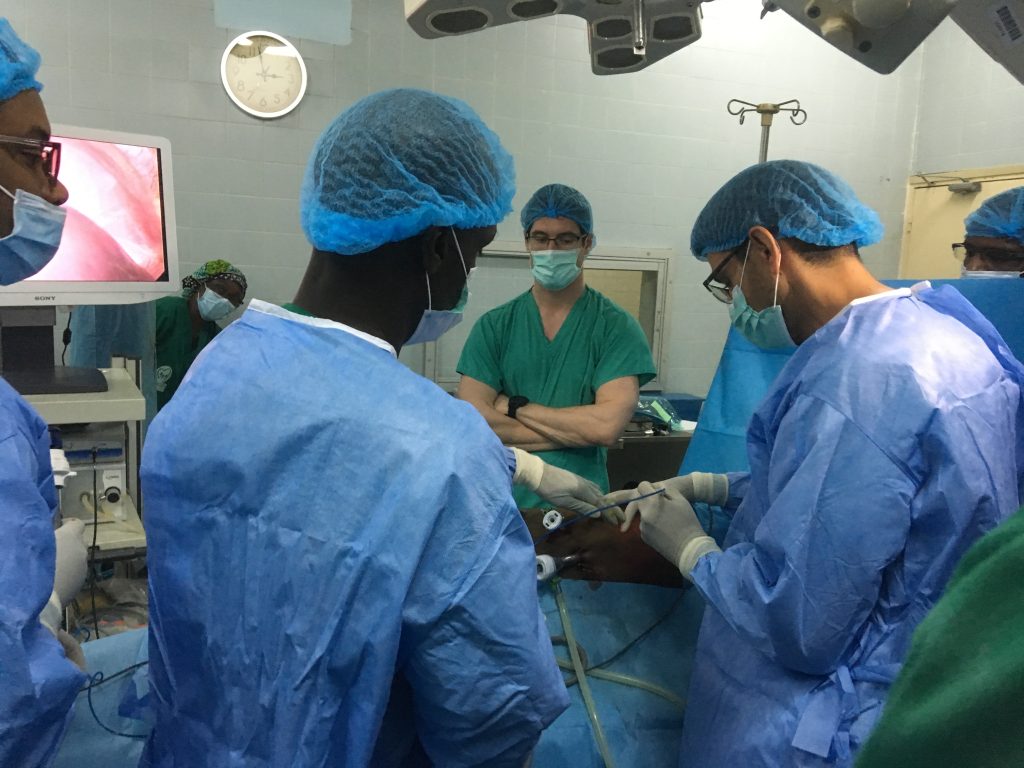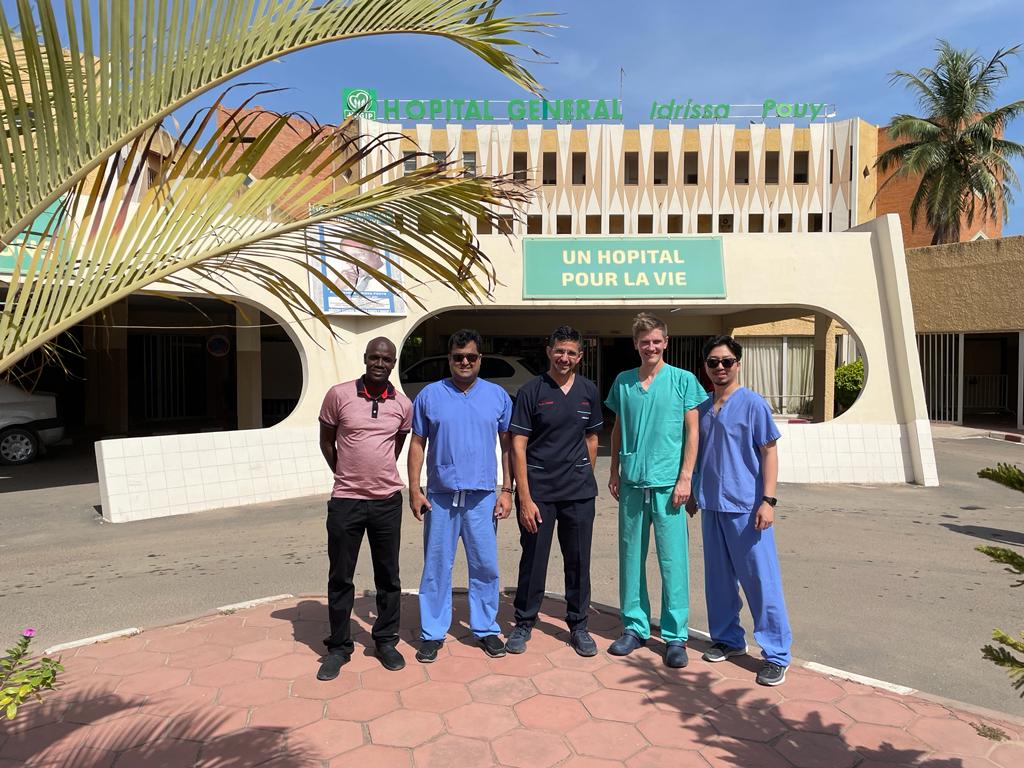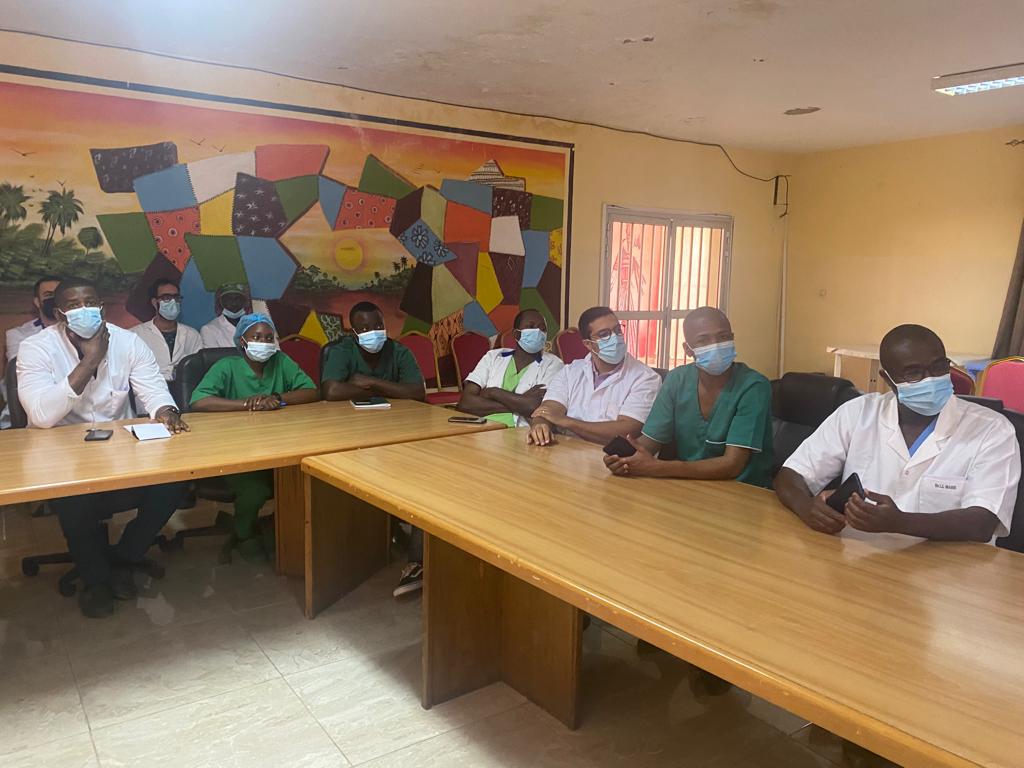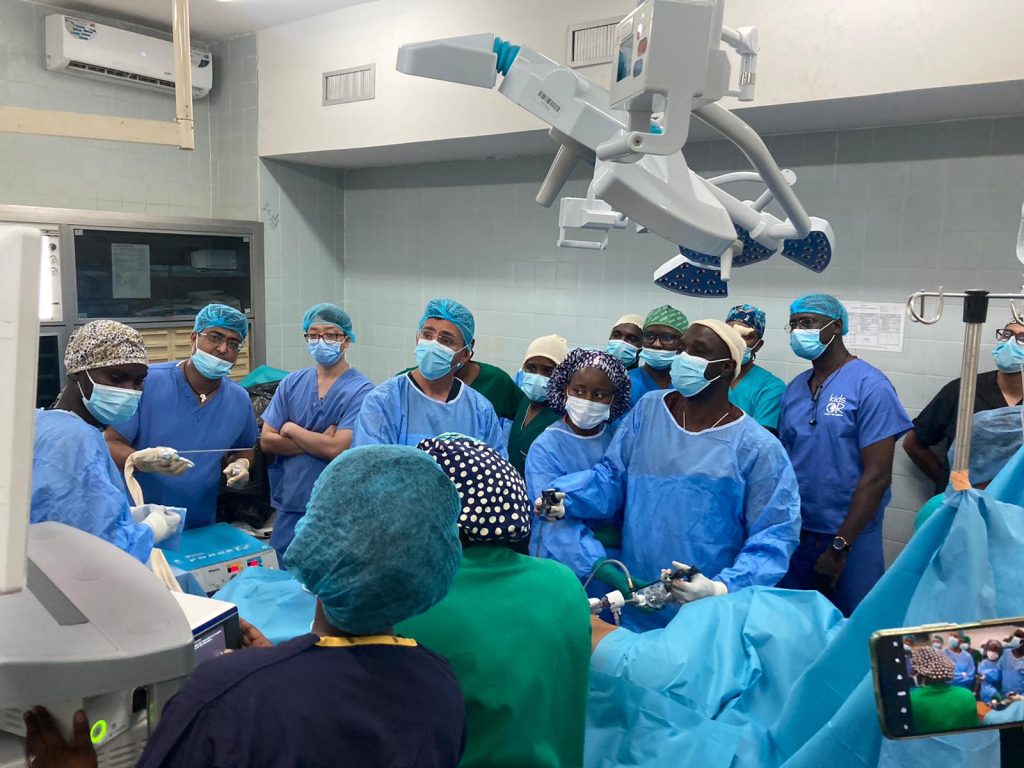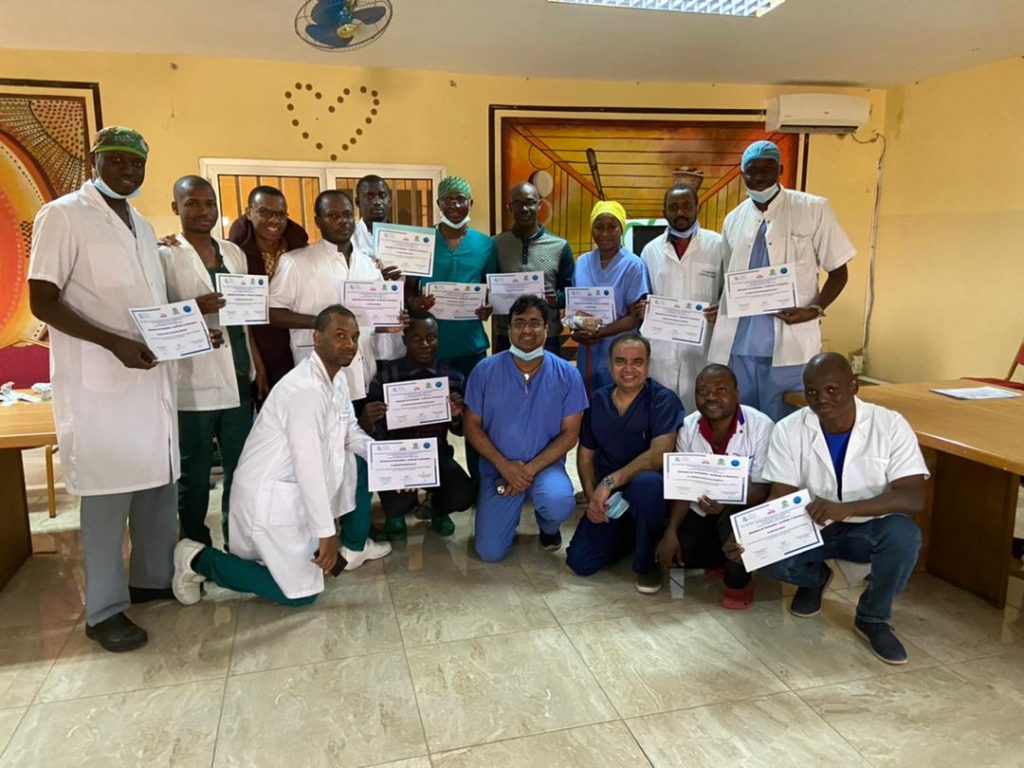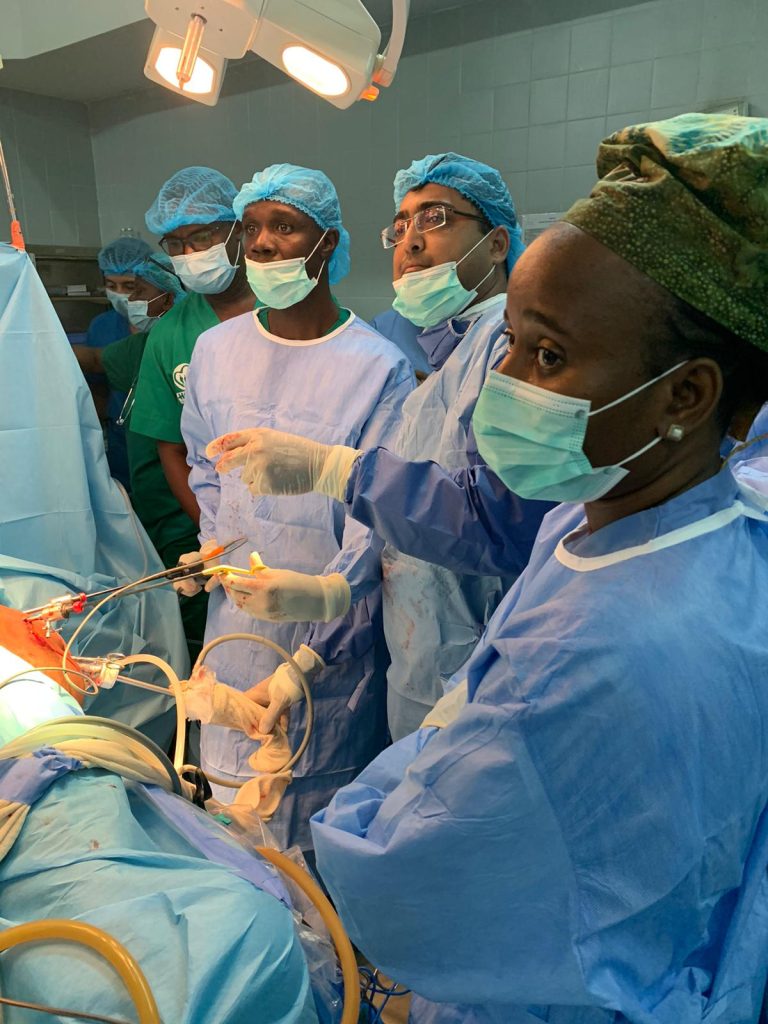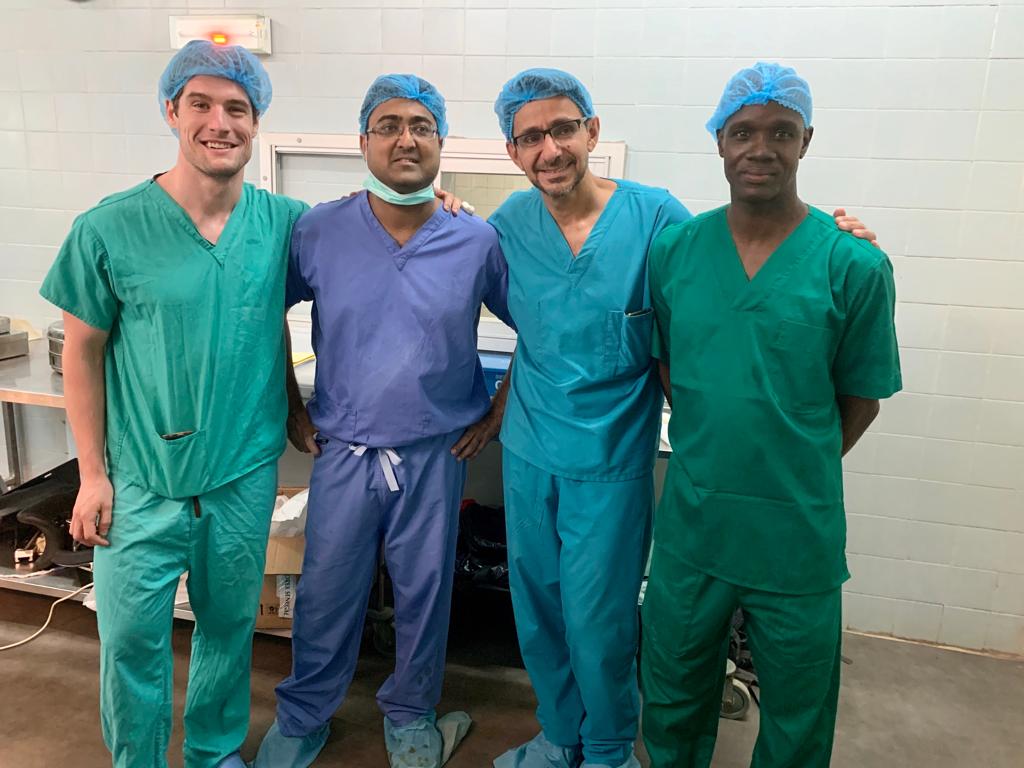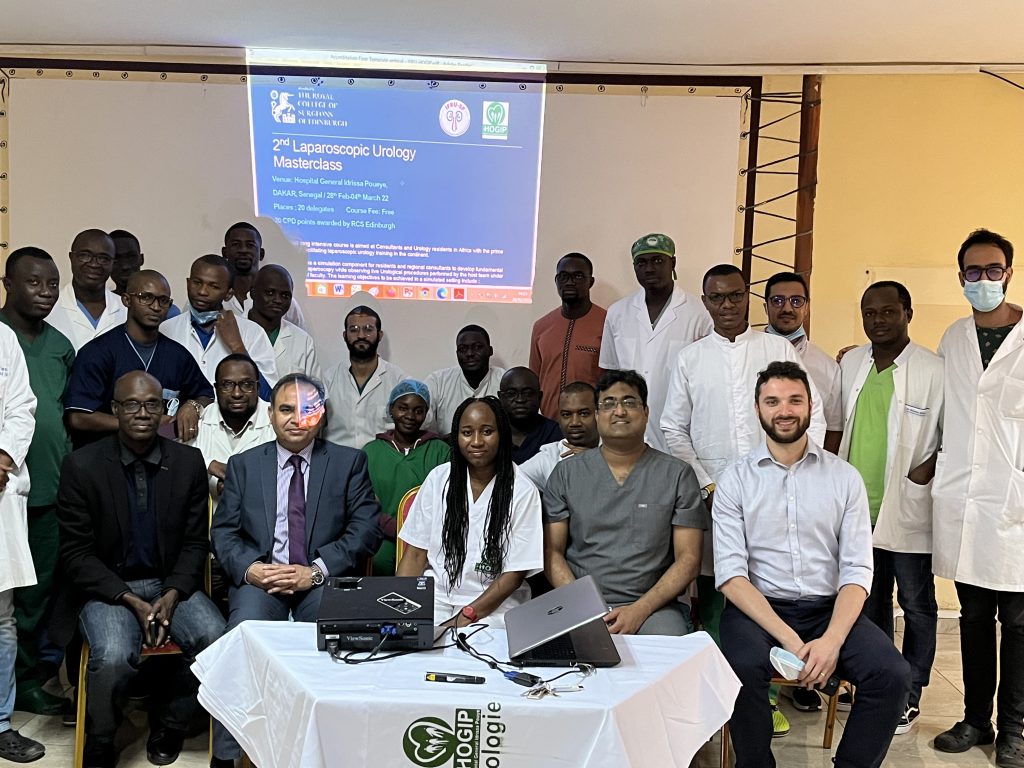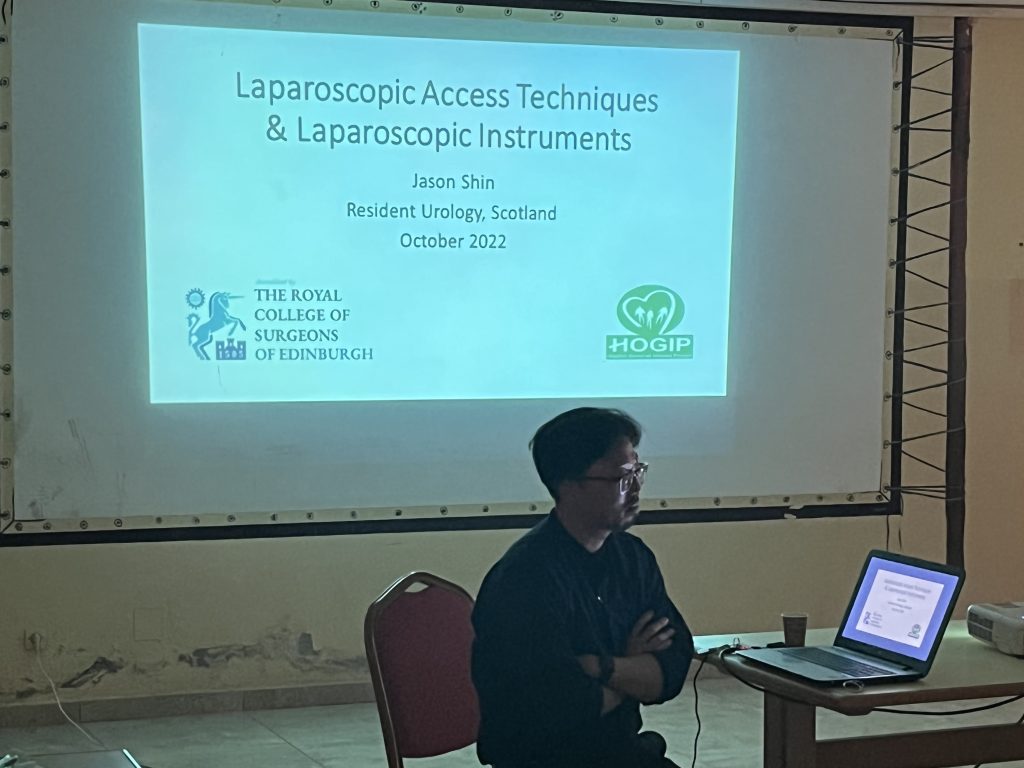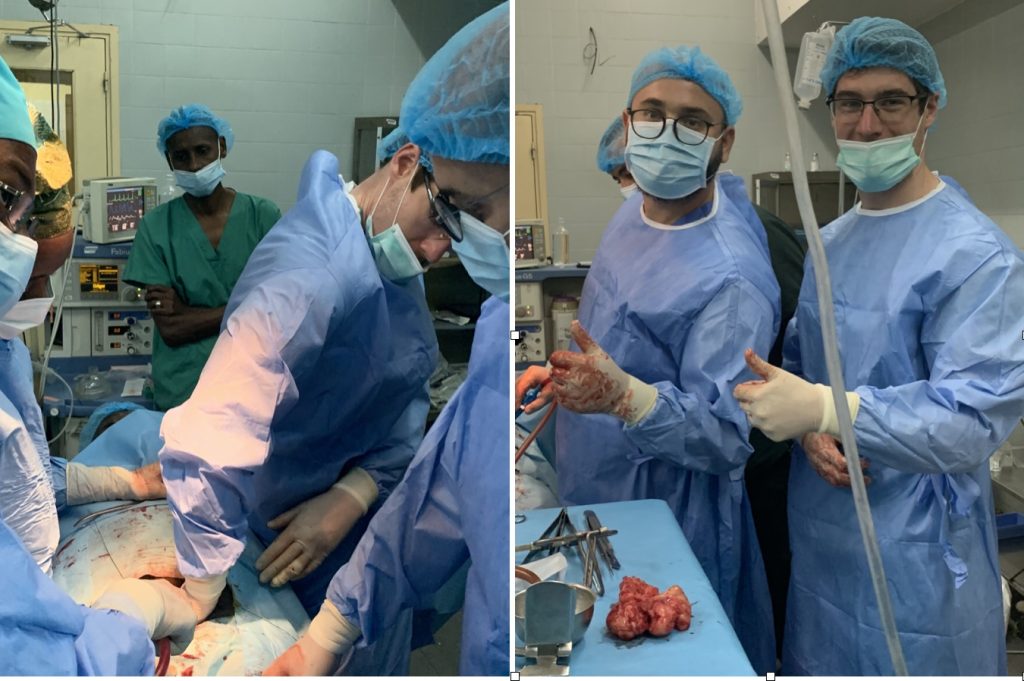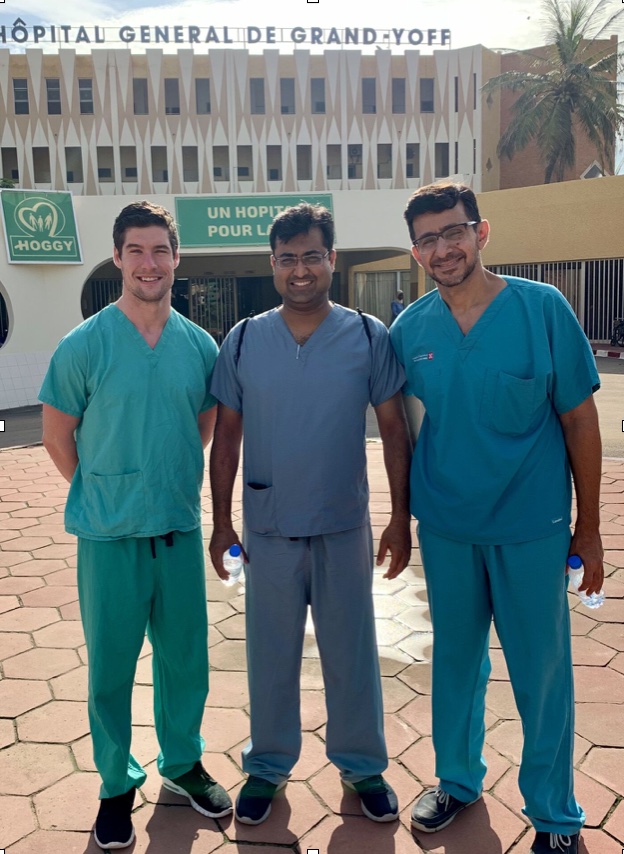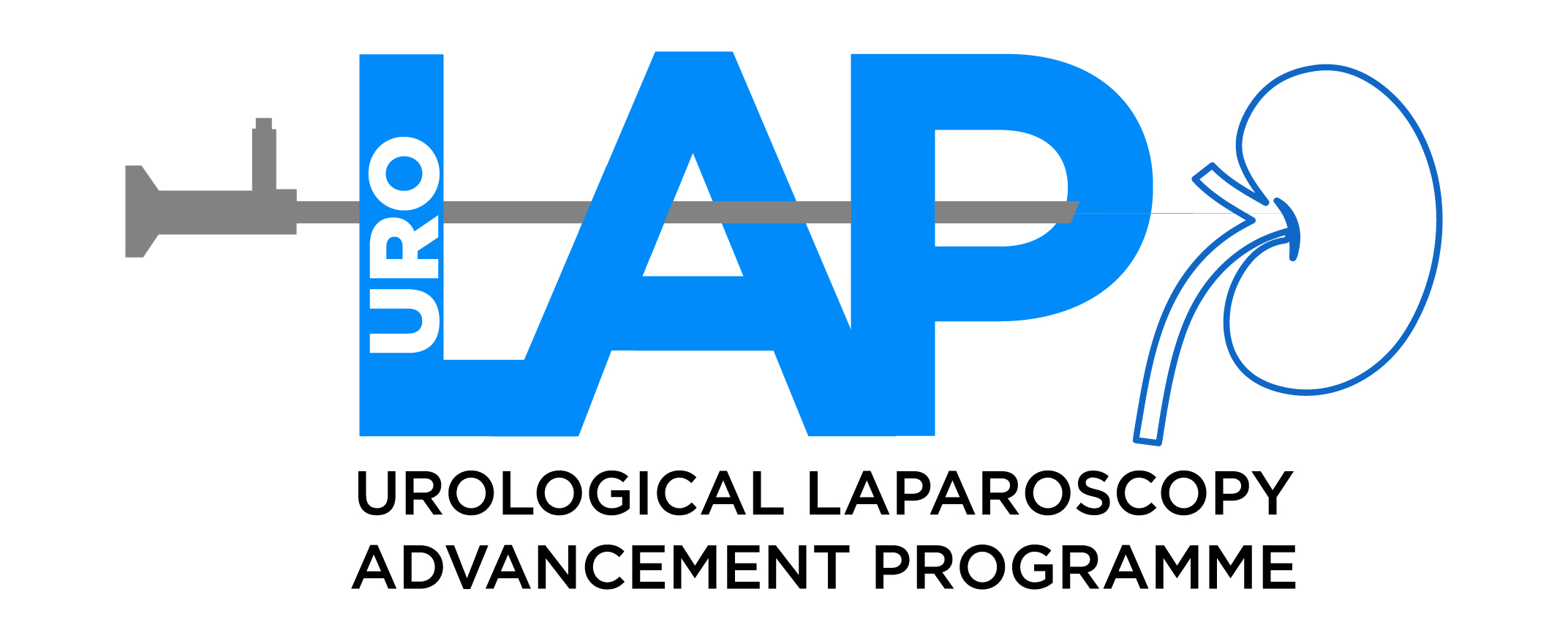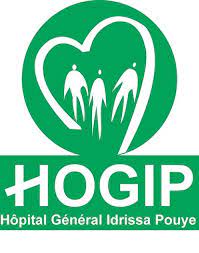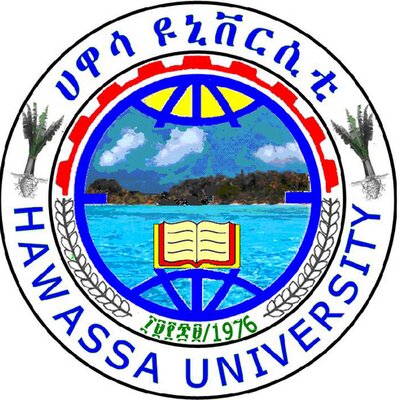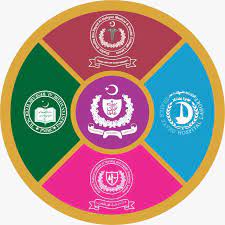Hospital General Idrissa Pouye (HOGIP), formerly known as Hospital General De Grand Yoff (HOGGY), stands as one of the largest and most esteemed teaching institutions in West Africa, offering top-tier specialist training across various medical and surgical disciplines. Besides catering to Senegalese students, it also serves as a training hub for learners from neighboring West African countries such as Niger, Guinea, Chad, the Central African Republic, Ivory Coast, Burkina Faso, Gabon, and notably, North African nations like Tunisia and Morocco.
The Urology department at HOGIP has long been recognized as a center of excellence and a premier teaching facility in West Sub-Saharan Africa. Led by six consultants, with Professor Niang currently at the helm, the department boasts approximately 25-30 beds and two operating theaters. It serves a wide geographic populace, specializing in Female and reconstructive urology, Uro-oncology, EndoUrology, Andrology, and Pediatric Urology.
Our engagement with HOGIP commenced with the establishment of laparoscopic Urology services, marking the inception of the department’s journey into this specialized field. We initiated a structured, intensive weekly Laparoscopic Urology workshop, accredited by the Royal College of Surgeons of Edinburgh, with the long-term vision of positioning HOGIP as a primary training institution for laparoscopic Urology in West Africa.

1ST LAPAROSCOPIC UROLOGY MASTERCLASS07-11TH OCTOBER 2019
FACULTY
Mr Zeeshan M Aslam FRCS FEBU – (ZA) ; Ninewells Hospital
Mr Ali Thwaini FRCS FEBU – (AT) ; Belfast City Hospital
Mr Matt Trail MRCS – (MT) ; Ninewells Hospital
Professor Lamine Niang – (LN) ; HOGGY
In October 2019, after meticulous planning spanning several months, Dr Zeeshan Aslam, along with consultant colleague Mr. Ali Thwaini and Urology trainee Matt Trail, conducted a five-day laparoscopic workshop at HOGIP.
Pre-Workshop Planning
Considerable effort was invested in planning the workshop meticulously to ensure its success. This entailed creating laparoscopic training models, collaborating on case selection via email and WhatsApp with local faculty, designing the course program, preparing lectures, and organizing local logistics.
Workshop Experience
Day 1 – Tutorials and Simulation
We were warmly received by Prof. LN upon our arrival at the hospital early in the morning. We met with Professor Sergine Gueye, the then head of the department, Dr. Medina Ndoye, and other consultants. It was inspiring to see not only residents from Senegal but also from various other African countries participating in the workshop with great enthusiasm.
We delivered pertinent lectures covering laparoscopic access, nephrectomy, pyeloplasty, and managing complications of laparoscopy. The residents actively engaged in discussions and posed relevant questions to enhance their understanding.
Following this, we met with the hospital’s senior management alongside Professors Niang and Gueye, where we briefed them about our workshop and our long-term goals to develop the center as a hub for Urological laparoscopy training.
After lunch, we visited the skills center with the departmental consultants and demonstrated the assembly of a laparoscopic trainer box made from a simple laundry box. Hands-on exercises were conducted on chicken models, providing ample opportunity for practice in dissection and the use of common laparoscopic instruments. This session was highly appreciated by the trainees, many of whom expressed that it was their first exposure to laparoscopic simulation.
Days 2-5
The subsequent four days focused on practical training in the operating theater with Prof. Niang and his team, who intermittently scrubbed in to assist and perform steps of pre-planned procedures alongside the faculty. Four bilateral laparoscopic varicocele ligations were scheduled, allowing for practice in access techniques and basic instrument manipulation. As the first case commenced and we went through the WHO pre-operative checklist—a novelty at HOGIP—the excitement among the nearly 20 observing residents was palpable. By the fourth case, Prof. Niang and one of his colleagues, Dr. Medina Ndoye, demonstrated near-independence in the procedure, requiring only minimal guidance from the faculty—an immensely gratifying outcome for the trainers.
Over the subsequent three days, laparoscopic renal cyst decortication, pyeloplasty, and laparoscopic-assisted partial nephrectomy were scheduled. The objective was not for the delegates to achieve complete independence in these procedures but to execute specific steps under close supervision and guidance. It was evident that with structured mentorship, the residents’ skills were already improving. These cases offered invaluable learning opportunities for the observing residents, many of whom were trained in open surgery but had limited exposure to live laparoscopic procedures.
Operating conditions posed challenges, with the faculty continuously adapting to suboptimal circumstances, including a lack of a break on the operating table, malfunctioning insufflator, and basic instruments without access to an energy device for dissection. In Senegal and many other SSA hospitals, it is not standard practice to have a scrub nurse present in the theater, adding to the excitement for residents as they took turns assuming this role.
Meanwhile, our UK trainee Mr. Trail had the opportunity to perform an open nephrectomy and Millin’s retropubic prostatectomy during these operating days. With opportunities for open Urological surgery dwindling in the UK, this experience was both memorable and invaluable for him.
A sense of achievement permeated the department by the fifth and final day of the workshop. Feedback from all delegates, gathered through a survey, was overwhelmingly positive, with participants expressing heightened interest in pursuing training in laparoscopic urology. Many requested additional simulation sessions in future workshops. Led by Prof. Niang, we conducted a traditional grand round on the last day to review the patients operated on during the week who remained hospitalized.
Positive Outcomes from the Workshop:
The host team commenced performing laparoscopic varicocele surgeries independently. Our team initiated efforts to develop additional infrastructure to facilitate the safe teaching of major urological procedures.
2nd LAPAROSCOPIC UROLOGY MASTERCLASS
28th February – 4th March 2022
UK Faculty
Zeeshan Aslam – Ninewells Hospital UK
Mazhar Sheikh – Blackpool Victoria Hospital UK
Jamie Krishnan – Ninewells Hospital, UK
After the successful laparoscopy workshop in October 2019, the host team at HOGIP began independently performing laparoscopic varicocele surgeries. Unfortunately, the COVID-19 pandemic halted further visits for over two years. However, with the resumption of our mission, significant progress was made, including the adoption of the hospital’s new name from HOGGY to HOGIP.
During this hiatus, the popularity of virtual platforms like ZOOM soared, enabling us to conduct pre-visit teaching sessions on laparoscopic nephrectomies via video sharing, which proved immensely beneficial. Additionally, generous donations from Medtronic and Applied Medical facilitated the acquisition of essential laparoscopic equipment, crucial for safe operations and significantly impacting the mentoring process.
The workshop followed a similar model to the previous one, with simulations for residents and lectures for all attendees. For hands-on training, the focus was on laparoscopic nephrectomies. Leveraging Prof. Niang and his team’s extensive experience in open surgery and their successful performance of surgical steps during the previous workshop, coupled with gaining independence in varicocele ligations, their rapid acquisition of nephrectomy skills was remarkable.
Throughout the week, Dr. Ndoye, Dr. Abdul Rehman Diallo, and Prof. Niang each took turns as the primary surgeon, with all cases performed nearly 100% by the host team under supervision, without any adverse events. The meticulous handling of the renal hilum was particularly encouraging, reinforcing the belief within the host team that with continued training provision, they can safely master and perform these major procedures. The faculty fully supported this conviction.
3rd LAPAROSCOPIC UROLOGY MASTERCLASS
3rd-7th October 2022
Faculty :
Zeeshan Aslam
Ali Thwaini
James Blackmur
Jason Shin
After witnessing promising progress in the previous workshop, we organized this consecutive workshop to further refine the skills acquired in March 22. This workshop focused on a blend of Laparoscopic nephrectomies and pyeloplasties. The team exhibited ongoing advancement in both procedures, with noticeable improvements in skill levels. Residents continued to derive benefits from simulation sessions, lectures, and live observations in the operating theatres.
Overall, the department was found to be better equipped and prepared for laparoscopic services. This assessment was affirmed as, subsequent to the workshop, the team commenced performing independent Laparoscopic nephrectomies and adrenalectomies proficiently and safely. However, establishing laparoscopic services demands time and patience, and we plan to persist with workshops to fine-tune these skills. Our next workshop is slated to coincide with the Association Senegalese D’Urologie annual meeting in May 24, which will be jointly hosted by HOGIP and Centre de Santa Ngor, Dakar.
Acknowledgement : We are grateful to Scottish Urological Society for travel grants awarded to the Urology Specialist Trainees in Scotland for these visits.
Upcoming :
4th Laparoscopic Urology Masterclass
13-16th May 2024
